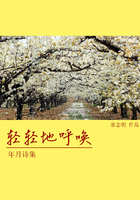The Forests of Oregon and their Inhabitants Like the forests of Washington, already described, those of Oregon are in great part made up of the Douglas spruce[32], or Oregon pine (Abies Douglasii). A large number of mills are at work upon this species, especially along the Columbia, but these as yet have made but little impression upon its dense masses, the mills here being small as compared with those of the Puget Sound region. The white cedar, or Port Orford cedar (Cupressus Lawsoniana, or Chamaecyparis Lawsoniana), is one of the most beautiful of the evergreens, and produces excellent lumber, considerable quantities of which are shipped to the San Francisco market. It is found mostly about Coos Bay, along the Coquille River, and on the northern slopes of the Siskiyou Mountains, and extends down the coast into California. The silver firs, the spruces, and the colossal arbor-vitae, or white cedar[33](Thuja gigantea), described in the chapter on Washington, are also found here in great beauty and perfection, the largest of these (Picea grandis, Loud.; Abies grandis, Lindl.) being confined mostly to the coast region, where it attains a height of three hundred feet, and a diameter of ten or twelve feet. Five or six species of pines are found in the State, the most important of which, both as to lumber and as to the part they play in the general wealth and beauty of the forests, are the yellow and sugar pines (Pinus ponderosa and P.
Lambertiana). The yellow pine is most abundant on the eastern slopes of the Cascades, forming there the main bulk of the forest in many places. It is also common along the borders of the open spaces in Willamette Valley. In the southern portion of the State the sugar pine, which is the king of all the pines and the glory of the Sierra forests, occurs in considerable abundance in the basins of the Umpqua and Rogue Rivers, and it was in the Umpqua Hills that this noble tree was first discovered by the enthusiastic botanical explorer David Douglas, in the year 1826.
This is the Douglas for whom the noble Douglas spruce is named, and many a fair blooming plant also, which will serve to keep his memory fresh and sweet as long as beautiful trees and flowers are loved. The Indians of the lower Columbia River watched him with lively curiosity as he wandered about in the woods day after day, gazing intently on the ground or at the great trees, collecting specimens of everything he saw, but, unlike all the eager fur-gathering strangers they had hitherto seen, caring nothing about trade. And when at length they came to know him better, and saw that from year to year the growing things of the woods and prairies, meadows and plains, were his only object of pursuit, they called him the "Man of Grass," a title of which he was proud.
He was a Scotchman and first came to this coast in the spring of 1825 under the auspices of the London Horticultural Society, landing at the mouth of the Columbia after a long dismal voyage of the Columbia after a long, dismal voyage of eight months and fourteen days. During this first season he chose Fort Vancouver, belonging to the Hudson's Bay Company, as his headquarters, and from there made excursions into the glorious wilderness in every direction, discovering many new species among the trees as well as among the rich underbrush and smaller herbaceous vegetation. It was while making a trip to Mount Hood this year that he discovered the two largest and most beautiful firs in the world (Picea amabilis and P. nobilis--now called Abies), and from the seeds which he then collected and sent home tall trees are now growing in Scotland.
In one of his trips that summer, in the lower Willamette Valley, he saw in an Indian's tobacco pouch some of the seeds and scales of a new species of pine, which he learned were gathered from a large tree that grew far to the southward. Most of the following season was spent on the upper waters of the Columbia, and it was not until September that he returned to Fort Vancouver, about the time of the setting-in of the winter rains. Nevertheless, bearing in mind the great pine he had heard of, and the seeds of which he had seen, he made haste to set out on an excursion to the headwaters of the Willamette in search of it; and how he fared on this excursion and what dangers and hardships he endured is best told in his own journal, part of which I quote as follows:--
October 26th, 1826. Weather dull. Cold and cloudy. When my friends in England are made acquainted with my travels I fear they will think that I have told them nothing but my miseries....
I quitted my camp early in the morning to survey the neighboring country, leaving my guide to take charge of the horses until my return in the evening. About an hour's walk from the camp I met an Indian, who on perceiving me instantly strung his bow, placed on his left arm a sleeve of raccoon skin and stood on the defensive. Being quite sure that conduct was prompted by fear and not by hostile intentions, the poor fellow having probably never seen such a being as myself before, I laid my gun at my feet on the ground and waved my hand for him to come to me, which he did slowly and with great caution. I then made him place his bow and quiver of arrows beside my gun, and striking a light gave him a smoke out of my own pipe and a present of a few beads. With my pencil I made a rough sketch of the cone and pine tree which I wanted to obtain and drew his attention to it, when he instantly pointed with his hand to the hills fifteen or twenty miles distant towards the south; and when I expressed my intention of going thither, cheerfully set about accompanying me. At midday I reached my long-wished-for pines and lost no time in examining them and endeavoring to collect specimens and seeds. New and strange things seldom fail to make strong impressions and are therefore frequently overrated; so that, lest I should never see my friends in England to inform them verbally of this most beautiful and immensely grand tree.














